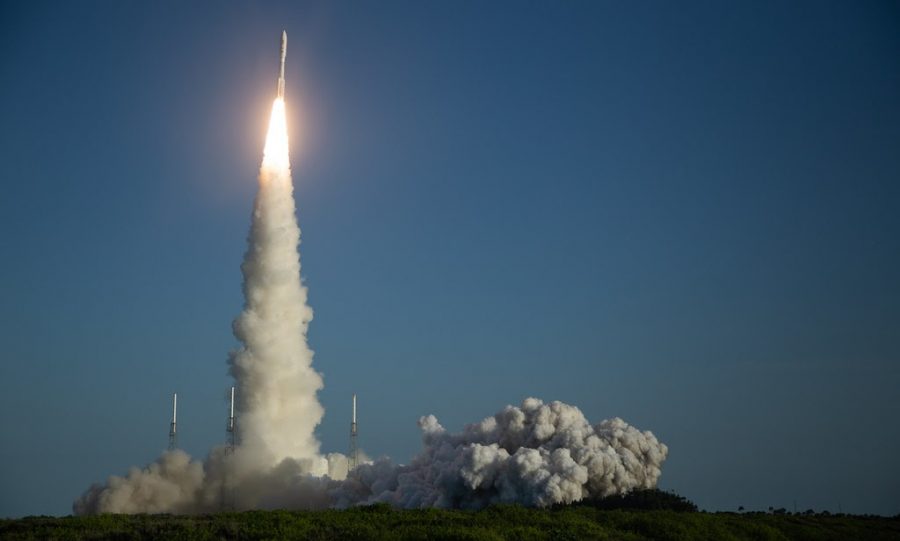NASA’s Perseverance rover: A huge stride in understanding Mars
Perseverance launches on July 30, 2020 from Florida.
As of Feb. 18, 2021, the Perseverance rover has landed on Mars to gather data regarding signs of ancient life and collect samples of rock and regolith. The data will be studied further if safely returned to Earth.
According to NASA, the rover’s journey began on July 30, 2020 from Cape Canaveral Air Force Station, FL. The rover’s expedition lasted for seven months, and covered a distance of about 290 million miles from takeoff to Mars.
The rover’s landing site was the Jezero Crater; it is believed that this crater was once flooded with water. The landing was stressful for everyone involved, but the rover successfully landed and became the first rover on Mars since 2012.
The Jezero Crater was chosen because the fact that it may once have been filled with water meant that microbial life could have been sustained under the conditions that once were. This would be a groundbreaking discovery, as it would be the first extraterrestrial life discovered.
The Perseverance rover means more than the new discoveries it will make. The rover also defines progress for the human race as a whole as we move towards greater projects. Through these missions, space exploration and colonization is inevitable.
“These discoveries offer us new perspectives on our society and our values, not only in the realm of technology, but also with respect to culture and spirituality,” said Professor of History Tim Kircher.
The Perseverance rover has led to a stronger sense of community among NASA scientists as well as others who are interested in space exploration.
“As we know, companies like SpaceX under Elon Musk are planning to launch travel to Mars between 2024 and 2026. This current mission will produce invaluable information for that enterprise,” said Kircher.
The rover makes history as NASA moves towards larger projects. According to CNBC, SpaceX CEO Elon Musk claims his company will be able to land humans on Mars by 2026, and the data provided by NASA on this trip may be essential for this goal.
“Any and all attempts to send expeditions to Mars is a positive move towards an eventual colonization,” said Early College student Luke Rodden.
According to NASA’s Jet Propulsion Laboratory, the Mars rover is equipped with several new items not available on previous rovers, including a Mars helicopter named Ingenuity. This will be the first aircraft to attempt controlled flight on Mars, but the thin atmosphere on Mars could prevent the aircraft from getting enough lift. Challenges such as these have been mostly thwarted through excellent engineering and other innovations.
“The landing demonstrates our ongoing passion to explore the world around us, beyond Earth,” said Kircher.










